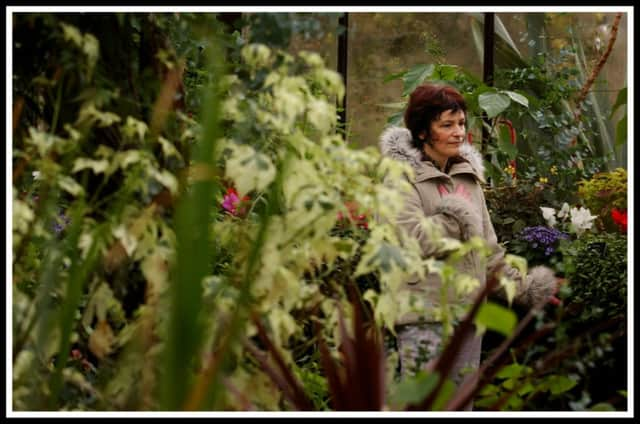Book review: Gone Are The Leaves by Anne Donovan


Gone Are The Leaves
Anne Donovan
Canongate, £12.99
Great things could reasonably have been expected, but her output in the ten years since hasn’t been prodigious: just a rather misjudged second novel, Being Emily, which appeared in 2008.
If this quietness on Donovan’s part has been because she has been working away all this time on her latest novel, then it’s been time well spent. This is a beautiful tale: a simple, medieval romance told largely in Scots, with such a passion for the language, and such an ear for its rhythms and alliterations, you’ll find yourself wishing all books could be written like this. Perhaps it’s too far to suggest that this was the book Donovan was born to write, but it fits her like a glove.
Advertisement
Hide AdWe begin without a specific time and location: we can tell that we are somewhere in Scotland and that this is possibly some kind of medieval period, but Donovan holds to the fantastical element that is currently making books and TV series like Game Of Thrones such a hit, and allows us to imagine what we like. We open with Deirdre, a young seamstress apprentice, who works for a fine Scottish laird and his beautiful French wife in their castle. Deirdre is all innocence at 13, barely even understanding the gossip about “my Lady” and the series of young boys who come and sing for her. She, in her turn, befriends Feilamort, an orphaned boy with an angelic voice.
But things cannot remain innocent for long in this world. Feilamort falls in love with Deirdre, just as he learns he will accompany the Lady and her daughter Alicia abroad. He fears his voice will not last and he will lose the position he holds, so he agrees to the suggestion that he become a eunuch, the better to keep his voice for longer. Before that happens, he wants to lie with Deirdre, and she agrees. Feilamort is taken away, Deirdre is apprenticed to be seamstress to a convent, and there she finds that she has fallen pregnant.
Deirdre’s mother and a priest, Father Anthony, who has been following Feilamort’s trail since he was born and is close to discovering his true identity as the illegitimate grandson of a rich French lord, spirit Deirdre away from the convent so that she can have her baby far from those who know her and will gossip about her. Her mother hands her over to the care of the priest and a nun, Sister Agnes, as they settle in the castle of the very same lord who is Feilamort’s grandfather. What will happen to them all when he learns of his grandson’s existence, and of Deirdre’s pregnancy?
This is a romance, and one whose innocence would allow it to be read by older children. Donovan keeps the “quest” aspect of the narrative fairly simple to follow, and switches between different perspectives to keep the plotlines clear and easy to follow as well. Where the richness lies is in her use of the Scots tongue: Deirdre is highly attuned to the landscape around her and her words echo the world she sees: “…the open water was sweeling and sharp beyond its shelter but inside its haven was douce, only spindrift and tricklets of foam splittering the deep azure and green…”
She understands too that man-made buildings and garden places reflect the mind; that they have a psychological sense behind their structure (“It wisna a showy gairden full of rids and gowds and oranges, but a calm and peaceful place, a place of recovery and healing.”)
Deirdre learns that, much like the language she uses, home is something she carries with her, even while she feels trapped, like a caged bird, in the French lord’s beautiful castle: her child, her love for Feilamort, even her skills as a seamstress, are what make it home for her. Still, she longs to return to the land of her birth, but mainly to her mother: this is a strong mother-daughter story where even the nuns – though some of them may lack a mother’s gentle touch – are the main sources of protection, fighting to the end to save the vulnerable.
Advertisement
Hide AdDonovan also reveals an innocent sensuality in the Scots she uses, the alliteration and assonance making for an intimacy between the words themselves, reflecting our desire to run them over our tongues again and again. It matches perfectly the setting, the romance of the past, and this simple but heartfelt tale. It all makes for a book many of us will want to read many times. n